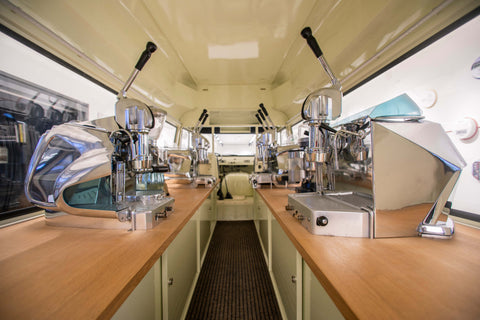Join us for a short conversation with Nora Smahelova, the Coffee Education Leader at Accademia del Caffé Espresso, and a proud partner of Standart Issue 22.
The Academy is set up to facilitate the meeting of different cultures, values, and points of view. How do you think this sort of collaboration will shape the future of coffee?
It is impossible to predict the future, but we can try to affect it, for the future depends on what you do today. The more you focus on today, the more generous the future will be.
Our contribution is to spread and improve the knowledge about specialty coffee from seed to cup, narrowing the distance between origin and the final consumer. Hopefully one day consumers’ coffee consumption habits will be more like those of, for example, wine drinkers, who, regardless of their knowledge, generally consume wine with more care and sensitivity. The subject of coffee is ever-changing. It’s only possible to keep evolving and improving by listening to and exchanging ideas with as many people as possible from different cultures, different experiences, and different perspectives.

What does the stated concentration on espresso allow in terms of focus? Often setting constraints and severe foci allows more freedom and movement within.
Espresso is one of many possible ways of extracting coffee. Actually, we might consider it the ‘royal standard’ of extracting coffee, dependent as it is on the combination human and machine to produce a short, compact, and complex beverage. Though improper preparation, with even one of a multitude of steps is skipped or poorly performed, can undermine all the work across the supply chain that brought that coffee to the consumer. It is not just a beverage, it is an essential factor of culture and social life—an integral part of the daily routines of the community, not only in Italy, but worldwide.
Our focus on espresso allows us to address a large number of people from all kinds of backgrounds, and we keep discovering every day just how complex ‘espresso’ is, from the culture surrounding it to the history, technical innovations, sensorial analyses, and social aspects.

What specific sort of work and research will the academy be doing with regards to sustainability?
For us, sustainability is a key factor. We focus on sustainability on different levels, from our day-to-day practices to collaborations with universities and other institutions to push understanding more and more. We also rely on our partners in producing countries, both on research level an interpersonal one, to help us understand all that we can about the situation on the ground.
'The more you focus on today, the more generous the future will be.'
Producing and consuming coffee must happen with respect for the environment and the ecosystem at all points along the value chain, by defining and communicating eco-compatible methodologies. In an optimal longterm scenario, this will lead to mitigating the results of climate change, but at the same time it allows us to promote and celebrate the importance of high quality during its entire journey from seed to cup.
This interview was published in proud collaboration with Accademia del Caffé Espresso.



